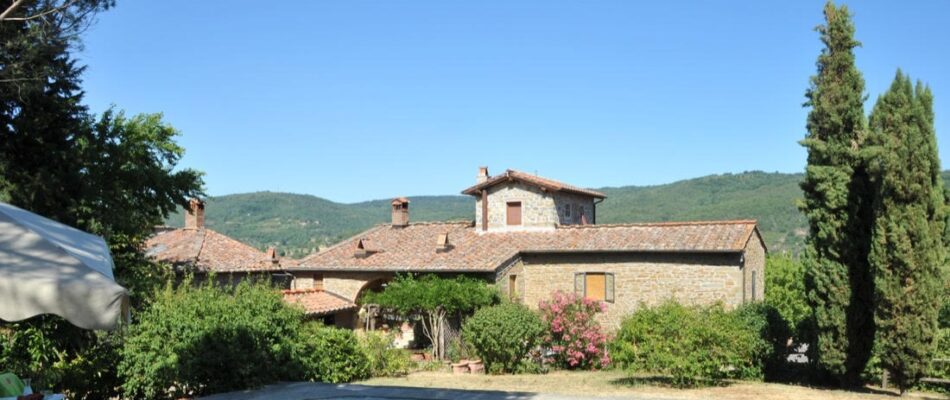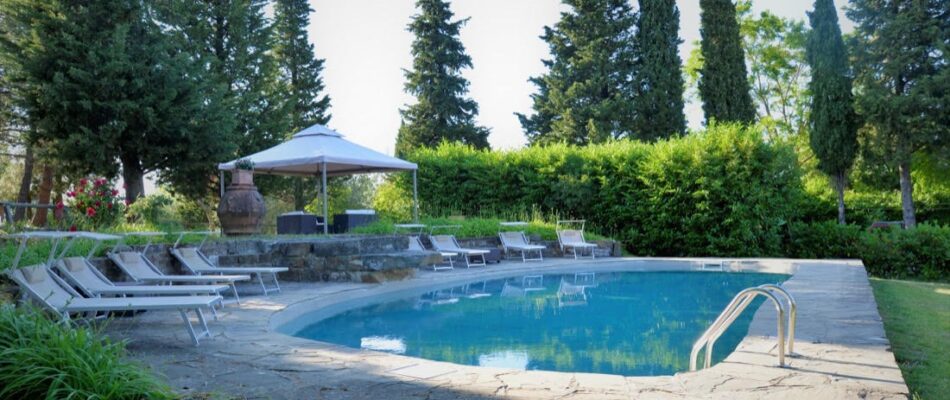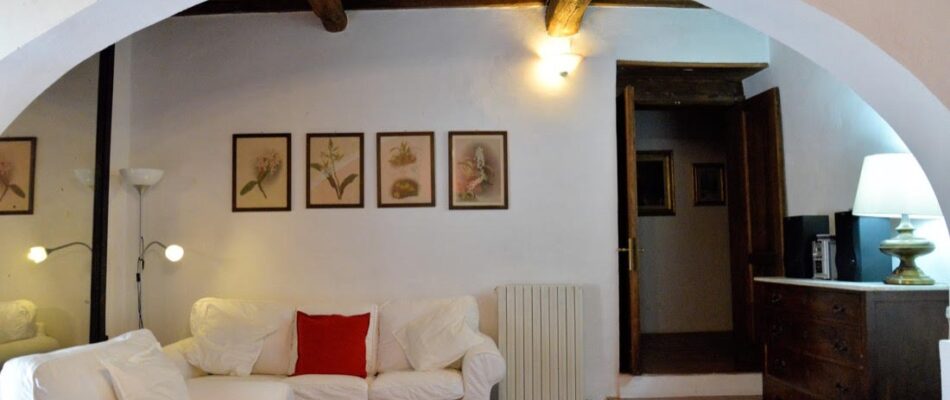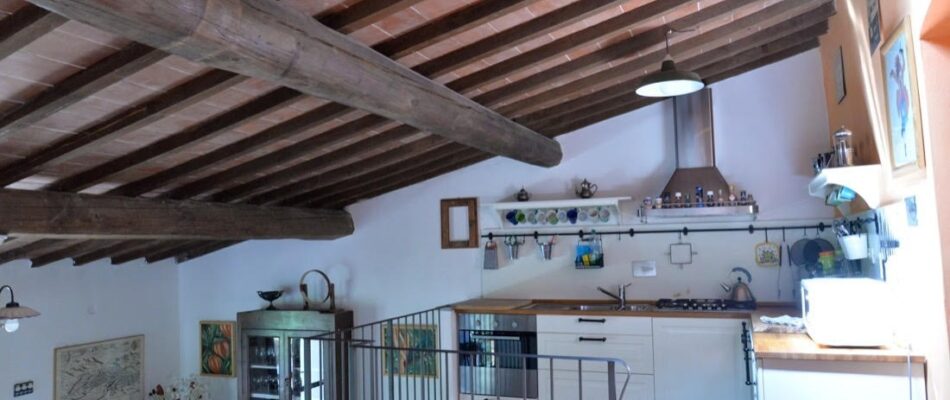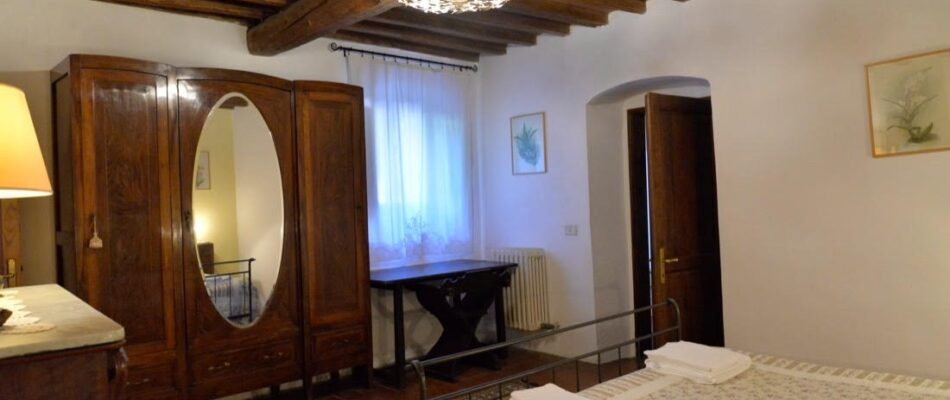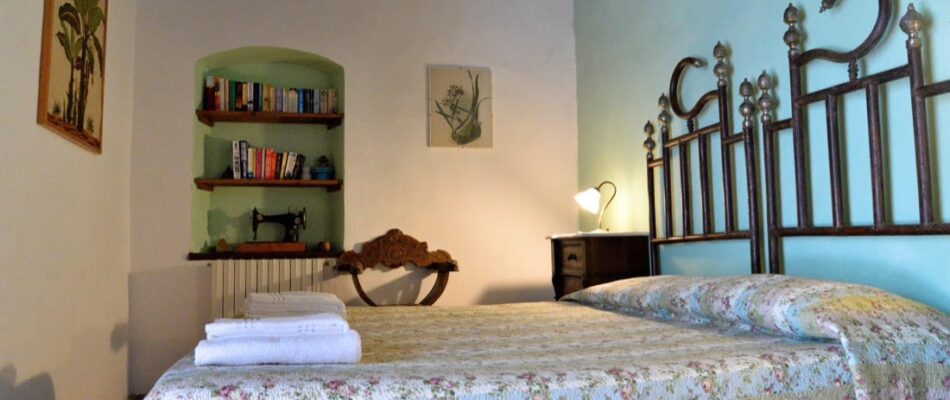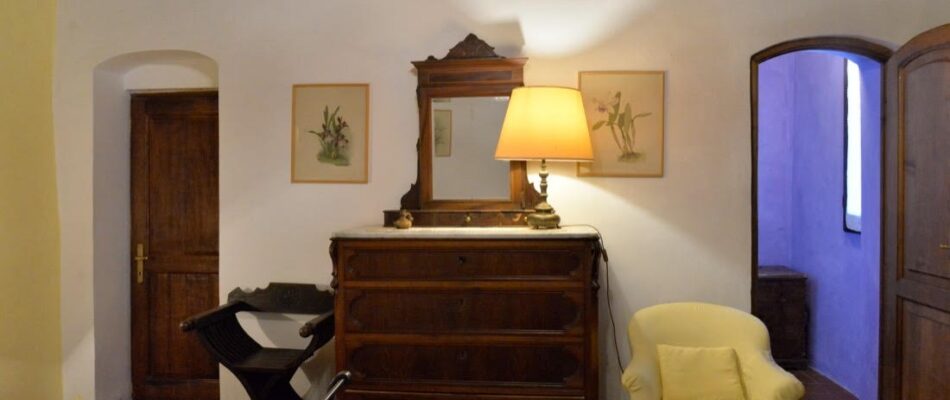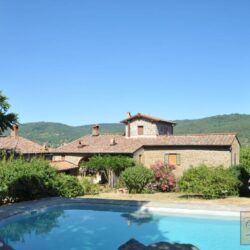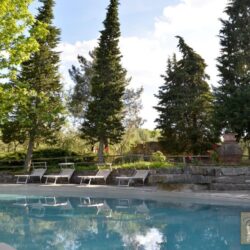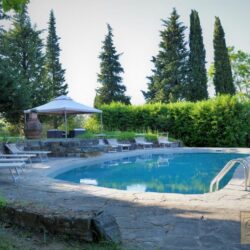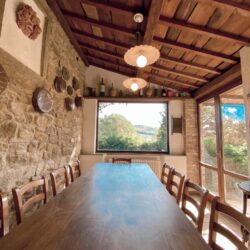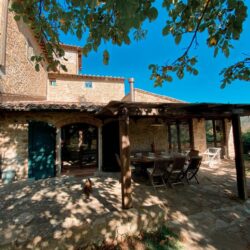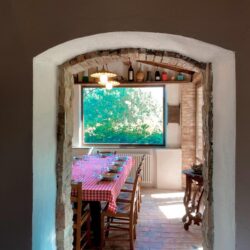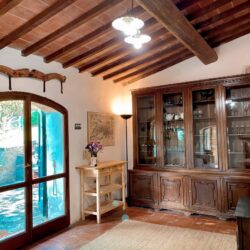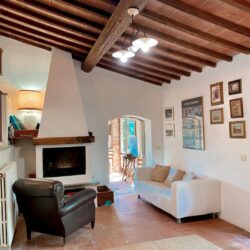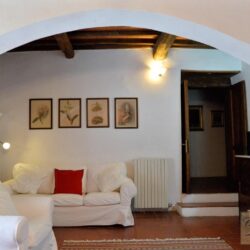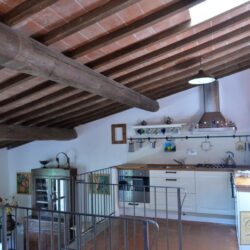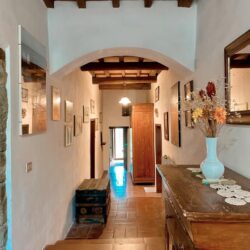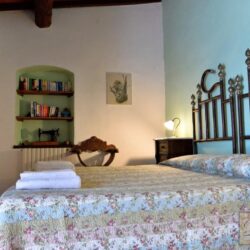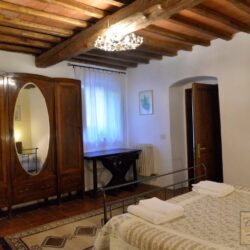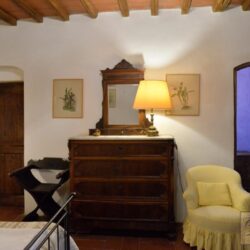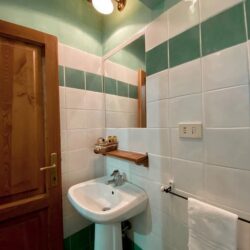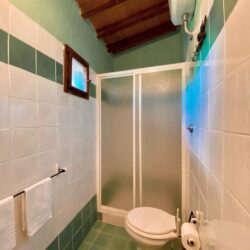ITALY, TUSCANY, CHIANTI
A charming farmhouse in the heart of the Chianti Classico region, halfway between Siena and Florence, surrounded by nature, in a private location yet only a few kilometres from the nearest town.
Originally constructed in the 12th century as a watch tower, the property has a well-kept garden, swimming pool, surrounding fruit trees, olive trees, and a beautiful view of the Tuscan hills, giving the feeling of being in a peaceful oasis.
The house, whose historical origins are denoted by the ancient walls that make up its central core, is divided into two apartments, with independent access but internally connected totaling 400 sq metres.
The apartment on the ground floor is about 220 sq. metres. It is currently in the tourist rental circuit for the summer season. The entrance hall leads directly into the living room. On the right, in what was originally a loggia, we find a bright dining room; up a few steps to the mezzanine level we find the kitchenette.
Proceeding along the central corridor to the right are two bedrooms with en-suite bathrooms, one of which has independent access directly from the garden.
Continuing along the corridor, there are another two bedrooms with bathrooms, a double living room with fireplace from which there is access to an additional bathroom and a large storage room, which could be used as a kitchen.
Returning through the hallway from the living room, there is an additional entrance that leads to the front of the house and garden.
Exiting, we find a characteristic wood-burning oven with adjacent limonaia on the left and the stairs to access to the second apartment on the right.
The apartment on the second floor has an area of about 186 square metres and is where the current owners live.
The entrance leads to a living room with a large fireplace and cosy study on the far left.
Proceeding to the right we find the kitchen. From the hallway we access a spacious living room of about 40 square metres, equipped with a monumental fireplace and large windows which make the space feel very open. Continuing, we find a bedroom with the possibility of adding an en-suite bathroom. There is also a very large bathroom with a bathtub and panoramic view, and a walk-in closet that could be transformed into a third bedroom.
In the middle of the corridor are the stairs connecting to the apartment on the ground floor. Ascending the stairs, we access the tower which has been used as a second large room. This room has numerous bright windows from which one can have unique glimpses of the surrounding countryside.
At the rear of the house, we find a small annex of about 35 square metres with a veranda consisting of a living dining room with kitchenette, and a bedroom with a full bathroom.
Finally, there is a ruin that is to be completely restored and could be used as a second annex.
The property is surrounded by about 20 ha of land, part of which is an olive grove, a small orchard, arable land and mostly forest.
The house, mainly the apartment on the second floor, needs some modernisation, however, because of its unique location and context, it constitutes an excellent opportunity for investment both as a primary and secondary residence or as a rental business.
